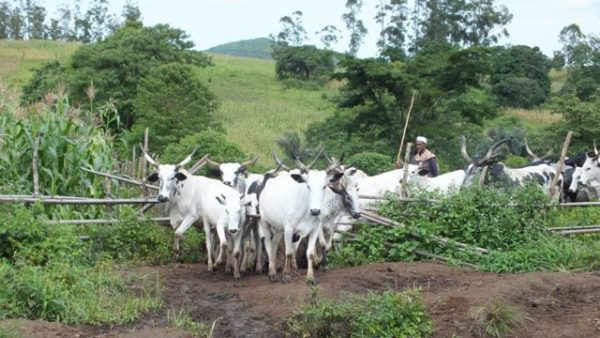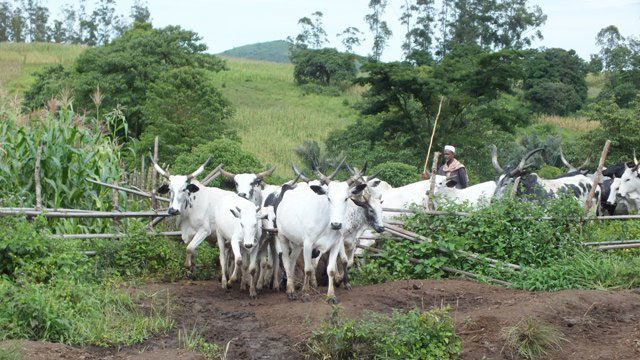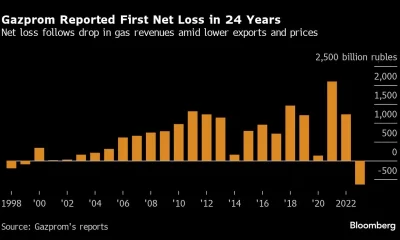Forgotten Dairies
Resolving the Fulani Herdsmen Question -By Majeed Dahiru


That the Fulani herdsmen are involved in violent clashes with their host communities is not in doubt. The root of the crisis is simply the struggle for land resources for economic activities. It is a known fact that the vegetative belts are greener and richer down south. The Guinea Savannah of the North-Central, the forest zone of the South-East and South-West, and the mangrove swamps of the Niger-Delta provide abundant green pasture for livestock.
The land tenure system of these regions, particularly the rural areas, is governed by customary laws which bestow ownership of land on families and clans/communities with little interference from state governments.
The Fulani herdsmen who are not indigenous to these regions are usually restricted in their grazing activities because of the fact that most indigenous people are farmers who equally have use for their lands.
With the expansion of farming and boost in livestock production but with land still remaining constant in size, clashes have become inevitable. Regrettably, the crisis is often times given religious coloration because Fulani herdsmen are predominantly Muslim, while their host communities are many times predominantly non-Muslim. Some conspiracy theorists have maintained that the current crisis is a continuation of Sheikh Uthman Dan Fodio’s 19th century Jihad and an attempt to forcefully conquer more territories for Islam. However this crisis is a consequence of the scarcity of resources, particularly land. It is economic warfare and should be put in proper perspective. It is important to understand that Islam spread from North Africa to the Western Sudan peacefully and not by force. Arab and Berber traders and craftsmen, through the Trans-Saharan trade, brought Islam to Hausa land as early as the 15th Century. Sheikh Uthman Dan Fodio did not introduce Islam to Nigeria, neither did he spread Islam by force, he only established and spread Muslim Fulani rule all over Hausa land and its environs.
The 1804 Fulani uprisings in Hausa land which is romanticised as a Jihad was as motivated by religious, as it was by economic and political factors. The unfavourable land tenure system practiced and enforced by Hausa rulers and oppressive social policies, as well as the denial of full citizenship rights to the Fulani, was fundamentally responsible for the Fulani uprisings in Hausa land and other parts of the western Sudan. The rulers of Hausa land that were fought against by the Fulani warriors were Muslims. Sarkin Gobir Yunfa, who is a major villain in the Jihad narrative, was not only a Muslim but he was a student of Sheikh Uthman Fodio. Therefore, the question of Fulani herdsmen attempting to forcefully Islamise non-Muslim parts of Nigeria is not really true because violent struggle for land between Hausa Fulani farmers and herdsmen still occur in the northern parts of the country.
One way out of the crisis is for state governments to carry out land reforms and redistribute land for genuine economic activities, whereby there will be the process of a fair land allocation to both farmers and herdsmen everywhere in Nigeria. Fulani Herdsmen are equally citizens with rights to live and settle anywhere within the Federal Republic of Nigeria. This problem is one that states should take responsibility for. The issue of creating grazing reserves by the federal government is a recipe for further crisis. Grazing reserves for herdsmen are not a pragmatic solution to a problem that is largely economic and practical. It is high time each of the 36 states evolve clear policies on the issue of the indigene/settler dichotomy, with rights and privileges spelt out clearly. Every state in Nigeria is supposed to have criteria and requirements on how to become an indigene. Some of these criteria may include; learning of the indigenous language, marriage to an indigene, owning of landed property, possession of certain unique skills (Fulani herdsmen are uniquely blessed with the science of animal husbandry and cattle rearing) etc.
Any Nigerian who wasn’t born originally in a particular state but wishes to become an indigene of that state should be given the opportunity. States should evolve laws and regulations which aim to properly assimilate settlers into their host communities. Whoever is ready to abide with these laws and regulations should be at liberty to do so, with rights and privileges including land ownership extended to them.
The Fulani herdsmen should be accommodated and assimilated into their host communities. The Fulani herdsmen should also reciprocate by being willing to be assimilated and live by the laws of their host communities.
For other crimes associated with Fulani herdsmen like kidnapping and armed robbery, the federal government through the various security agencies should deal decisively with these. These criminal activities used to be clearly distinct from the usual farmers’/herdsmen clashes. However, it is sad to note that there has been an apparent collaboration between criminal elements and some herdsmen for the purposes of defence and retaliatory attacks. An estimated five hundred thousand people have been killed or displaced by these clashes, mostly in the North-Central, South-Eastern and the Southern most part of Nigeria, with real threats to national unity and the corporate existence of Nigeria.
Cattle are sources of wealth and prosperity. Nigeria is indeed fortunate to have an abundant supply of cattle and other associated nutritional products, thanks to the resilient and hardworking Fulani herdsmen. Beef is one of the few products consumed in large quantities in Nigeria that is not imported, thereby saving us scarce foreign exchange. State governments should take advantage of these opportunities by evolving agricultural policies that will encourage Fulani herdsmen to settle permanently in their states by allocating land for ranches to breed their cattle. Fulani herdsmen should be assimilated and integrated economically and politically wherever they choose to settle as free citizens of Nigeria. It will be very good to have Fulani indigenes of Rivers, Akwa Ibom and Anambra States for example. The same incentives given to farmers should be extended to herdsmen. States down South can take advantage of this and become hubs of cattle market and other associated products such as cheese, milk and hides. Farmers can also plant animal feed for the herdsmen willing to pay for their herds to be allowed to feed from these farms, with whatever additional costs being added to the price of cattle. This may lead to an increase in the prices of beef but that is a far cheaper price to pay than the loss of human lives.
Majeed Dahiru, a public affairs analyst, writes from Abuja and can be reached through dahirumajeed@gmail.com




















